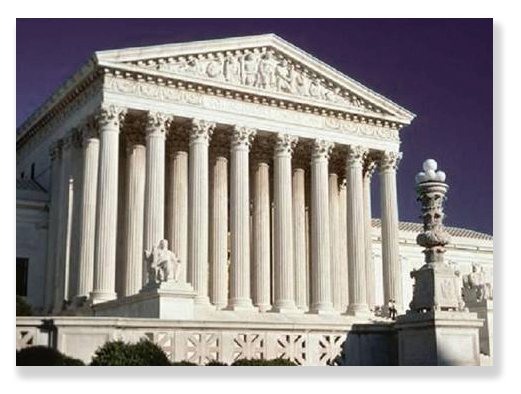- This topic is empty.
-
AuthorPosts
-
-
September 3, 2025 at 3:15 am #10586
Kris Marker
KeymasterWe post news and comment on federal criminal justice issues, focused primarily on trial and post-conviction matters, legislative initiatives, and sentencing issues.
LOTS OF CRIMINAL CASES ON SUPREME COURT FALL DOCKET
 The Supreme Court has presaged the start of its October 2025 term by releasing its initial oral argument. Over half of the 19 cases scheduled for oral argument are criminal law cases or closely related to criminal law, and a third of the total are sentencing cases. The number of such cases is substantially larger than the Court’s usual docket.
The Supreme Court has presaged the start of its October 2025 term by releasing its initial oral argument. Over half of the 19 cases scheduled for oral argument are criminal law cases or closely related to criminal law, and a third of the total are sentencing cases. The number of such cases is substantially larger than the Court’s usual docket.The best are:
Barrett v. United States, asking whether the 5th Amendment double jeopardy clause permits two sentences for a single act that violates both 18 USC §§ 924(c) and 924(j).
Ellingburg v. United States, asking whether criminal restitution under the Mandatory Victim Restitution Act is penal (punishment) for purposes of the Constitution’s ex post facto clause.
Rico v. United States, asking whether the fugitive-tolling doctrine – which holds that criminal defendants should not receive credit toward prison sentences for time that they have escaped – should be extended to cases where the defendant absconds from supervised release.
Easily the most consequential are Rutherford v. United States and Fernandez v. United States. Rutherford, brought by a defendant serving stacked § 924(c) sentences of 32 years for carrying a gun in two robberies, asks whether a district court may consider disparities created by the First Step Act’s prospective changes in sentencing law – such as destacking § 924(c) punishments – when deciding if “extraordinary and compelling reasons” warrant a “compassionate release” sentence reduction under 18 USC § 3582(c)(1)(A)(i). Fernandez is similar, asking whether a combination of “extraordinary and compelling reasons” that may warrant 18 USC § 3582(c)(1)(A) compassionate release can include reasons that may include grounds that could be raised to set aside a sentence under 28 USC § 2255.
 Rutherford has collected well over a dozen amicus briefs from groups as diverse as former judges, former Bureau of Prisons officials, FAMM, NAACP, NACDL and public defenders. Several prominent conservative groups are represented as well. Every amicus brief except one supports defendant Rutherford, and that one – by former Sentencing Commission officials – officially supports neither side but does argue that the USSC’s position that Rutherford is entitled to raise a change in the law as an extraordinary and compelling reason is consistent with Congress’s grant of broad authority to the Commission to define “extraordinary and compelling reasons” in the statute.
Rutherford has collected well over a dozen amicus briefs from groups as diverse as former judges, former Bureau of Prisons officials, FAMM, NAACP, NACDL and public defenders. Several prominent conservative groups are represented as well. Every amicus brief except one supports defendant Rutherford, and that one – by former Sentencing Commission officials – officially supports neither side but does argue that the USSC’s position that Rutherford is entitled to raise a change in the law as an extraordinary and compelling reason is consistent with Congress’s grant of broad authority to the Commission to define “extraordinary and compelling reasons” in the statute.Writing for Right on Crime, a conservative nonprofit, former prosecutor Rachel Wright said, “Punishment should also fit the crime, but in Rutherford’s case, the sentence far exceeds what Congress now deems appropriate. No judge should be forced to act as a rubber stamp for outdated policies. We must ensure that justice keeps pace with legislative reform. Right On Crime supports Rutherford’s appeal, saying it reflects conservative values: limited government, evidence-based decision-making and fairness in sentencing. By allowing judges the discretion to recognize outdated penalties as extraordinary, the court could uphold both accountability and proportionality while conserving taxpayer resources.”
 Rutherford and Fernandez may not be the weightiest sentencing questions before the Supreme Court this fall. Writing in the Sentencing Matters Substack, Ohio State University law professor Douglas Berman (who filed an amicus brief supporting defendant Rutherford) observed that Ellingburg v. United States could be “the sleeper case of the Fall because it may require the Justices to grapple with the definition of ‘punishment’ for constitutional purposes.”
Rutherford and Fernandez may not be the weightiest sentencing questions before the Supreme Court this fall. Writing in the Sentencing Matters Substack, Ohio State University law professor Douglas Berman (who filed an amicus brief supporting defendant Rutherford) observed that Ellingburg v. United States could be “the sleeper case of the Fall because it may require the Justices to grapple with the definition of ‘punishment’ for constitutional purposes.”Barrett v. United States, Case No. 24-5774 (argument October 7, 2025)
Ellingburg v. United States, Case No. 24-482 (argument October 14, 2025)
Rico v. United States, Case No. 24-1056 (argument November 3, 2025)
Rutherford v. United States, Case No. (argument November 12, 2025)
Fernandez v. United States, Case No. 24-556 (argument November 12, 2025)
Right on Crime, Why Conservatives Should Care About Sentencing Disparities: The Case of Rutherford v. United States (August 20, 2025)
Sentencing Matters Substack, Sentencing cases aplenty when SCOTUS returns, with notable friends chiming in (August 18, 2025)
~ Thomas L. Root
-
-
AuthorPosts
- You must be logged in to reply to this topic.
